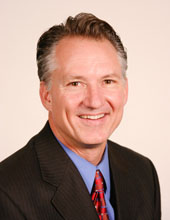Types of Lenders:
Mortgage Bankers and Mortgage Brokers
By Peter B. Murray
Mortgage Lenders
The different types of mortgage lenders include mortgage bankers, commercial banks, credit unions, and thrift institutions (savings banks and savings & loan associations).
Banks, savings & loans and credit unions gather funds from their customers through checking and savings accounts and certificates of deposits. These funds are then used to make loans. When these institutions make a mortgage loan, they may decide to hold it in portfolio or sell it to secondary market investors.
Mortgage bankers get their funds typically by selling their loans in the secondary mortgage market. Although the loan is sold shortly after funding, mortgage bankers may not sell the servicing on the loan. Since mortgage bankers primarily have one focus of business - to make mortgage loans - they usually offer very attractive loan programs and rates.
Mortgage Brokers
Mortgage brokers generate about 70 percent of all loans. They have access to a variety of lenders and often offer the most choice in loan programs. Brokers assist the consumer in completing the application and loan selection process and direct them to suitable lenders to fund the mortgage. If a loan application is turned down, mortgage brokers can quickly place a loan with another lender. Mortgage brokers are paid a fee by the borrower or the lender when a loan closes.
It is important to understand the difference between mortgage lenders and mortgage brokers. As a rule, mortgage brokers don't make a decision whether to extend you a loan, and they don't actually make the loan. They work as intermediaries between borrowers and lending sources. However this fact does not mean that you are paying a higher rate. Since mortgage brokers obtain their funds from a variety of sources, they can even save you money by shopping your loan.
Mortgage lenders usually have wholesale and retail departments. Mortgage brokers obtain rates at wholesale, mark up these rates by adding points and then quote you a retail rate which is what you get when you go directly to a lender. Mortgage brokers are free to set their own pricing and may markup wholesale rates differently.
When deciding on a mortgage broker it is important to choose one that shops rates with a large number of lenders, has a fair markup and good service.
Are You Dealing with a Lender or a Broker? It is not always clear. Generally, mortgage brokers don't use the word "broker" in their company name. If you are not sure, don't hesitate to ask your mortgage company if they act as a lender or as a broker. Many financial institutions currently operate as both lenders and brokers. For example, on some loans a mortgage company may act as a lender; on other loans - as a broker, or they may act as a lender in their home state and broker loans in some other states.
Regardless of what type of institution you do business with, it's important to make certain it has no complaints registered with state or federal regulators or the Better Business Bureau. You may also want to verify how long your bank or mortgage company has been in business.
Peter B. Murray is affiliated with Dove Mortgage, a Licensed Broker in California. Contact Pete at 800-707-3683.
